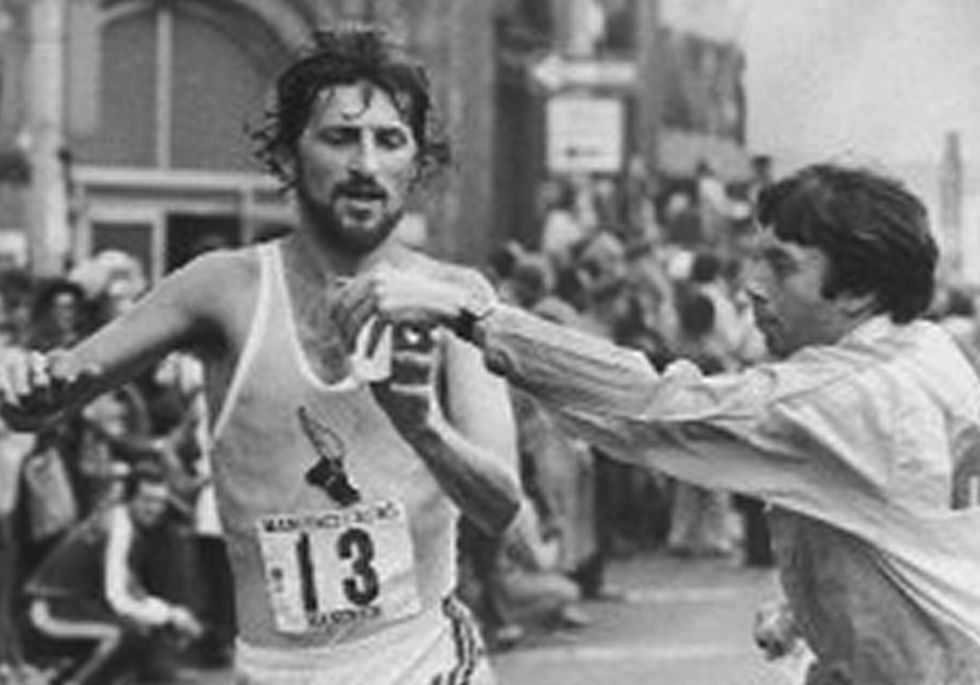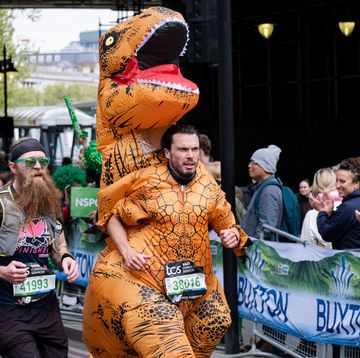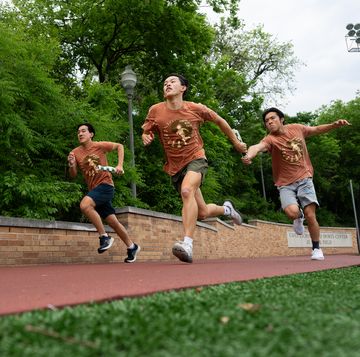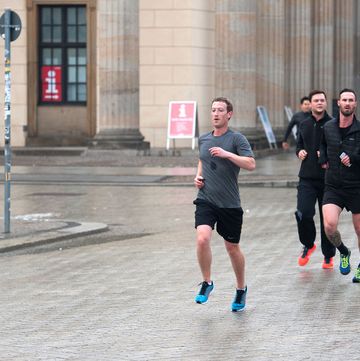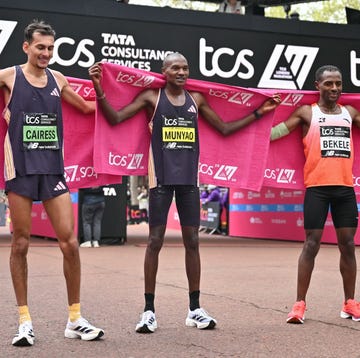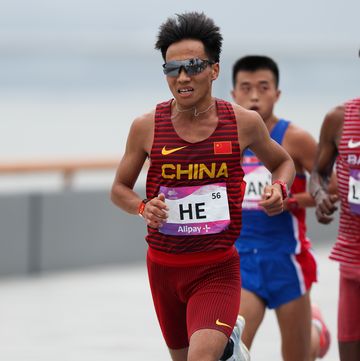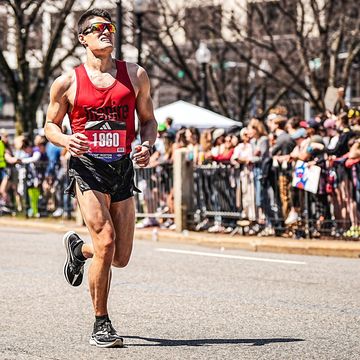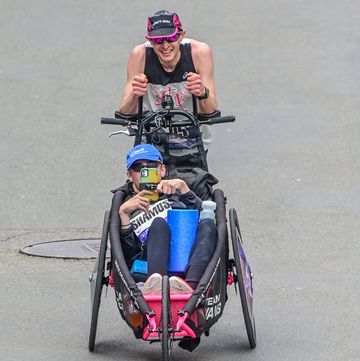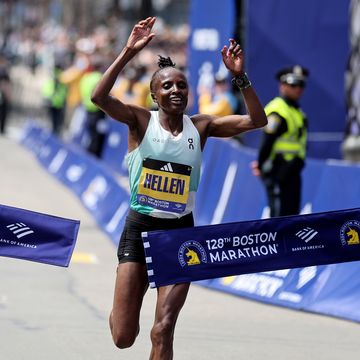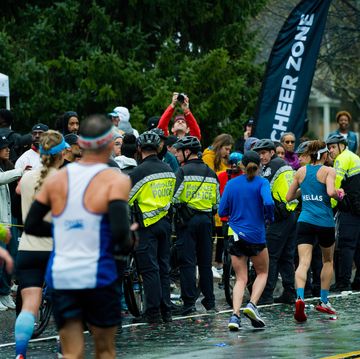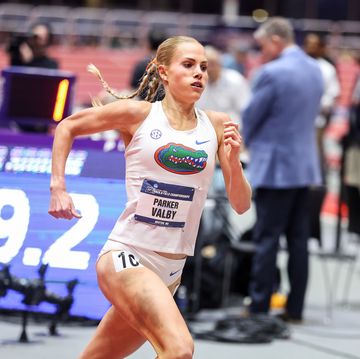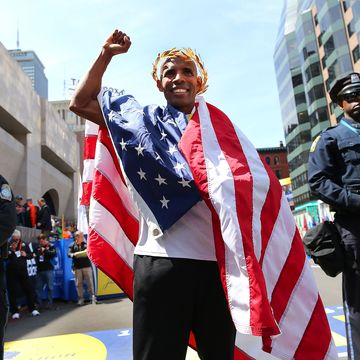Tom Fleming, who won the New York City Marathon in 1973 and 1975, and finished in the top three at the Boston Marathon three times, died on April 19. He was 65.
The cause was an apparent heart attack, according to Montclair Kimberley Academy (MKA) in Montclair, New Jersey, where Fleming taught fourth grade and coached track. He died as he was coaching the middle school track team in a meet in neighboring Verona.
“He was high energy, very empathetic, and had a remarkable ability to reach a wide range of kids, boys and girls,” said Tom Nammack, headmaster of MKA. “He didn’t run an easy classroom but it was a great classroom. Third graders who heard about him kept their fingers crossed that of our three sections of fourth grade, they’d end up in his.”
A prominent and popular figure in the first running boom, Fleming was revered for his dedication, which was exceptional even in that uncompromising generation. The words that hung on his bedroom wall have become legendary:
Somewhere in the world there is someone training when you are not. When you race him, he will win.
Born in 1951, Fleming lived in Bloomfield, New Jersey, and he became hooked on running during his last year at Bloomfield High School, 1968–69. He immediately began running 100-mile weeks in training. It was during that era when Frank Shorter, Steve Prefontaine, Jeff Galloway, and many others were committing themselves to the rigors of a sport that had always been dominated by the Europeans and Japanese.
ALSO: Masters Marathon Legend Ed Whitlock Dies at 86
Within five years, Americans were placing at the top. Fleming established himself among them by his passionate will to win, mixed with blunt honesty about the work it takes.
“Tom was a close pal, a great competitor, but down-to-earth,” said runner Mike Fanelli, a lifelong friend. “When I asked recently whether he could have caught Jon Anderson at the 1973 Boston Marathon, he just said, ‘Coulda, shoulda, didn’t.’”
Fleming’s father had been a 235-pound tackle for the Chicago Bears, and though Fleming raced at 145 pounds, he was just over six feet, and he had legs often described as tree trunks. At William Paterson University, he became a four-time All-American, though he insisted that he was equally proud of his double major in special education and elementary education.
At Boston in 1972, he placed 23rd in 2:25. But a year later, still a college senior, he was a contender.
“In contrast to his willingness to run vast mileages alone, he was not a quiet person. He was everything New Jersey—big, boisterous...brash, grinning, a verbal brawler. He considered himself a favorite to win Boston. And why not? He had trained more than anyone else,” wrote Tom Derderian in Boston Marathon.
Fleming was second that year, behind Jon Anderson. He was second again in 1974, behind Ireland’s Neil Cusack, and burst into tears of disappointment at the finish. In the tailwind race of 1975, a new talent named Bill Rodgers thwarted him, blitzing the American record, with Fleming third despite a PR of 2:12:05.
Fleming’s luck was better at the New York City Marathon. He won by almost two minutes in 1973, ahead of his friend Norb Sander, who died last month. Fleming won again in 1975, in 2:19:27, a record for the hilly Central Park course. When the race moved into the city streets in 1976, Fleming was sixth, behind Rodgers and Shorter.
Internationally, Fleming’s most significant performance was fourth place in 2:14:26.2 at the 1977 Fukuoka Marathon, when that race was close to being an annual world championship. His best shot at the Olympics was in 1976, when he finished fifth at the U.S. trials.
He won the Jersey Shore Marathon three times and also had marathon victories at Cleveland, Washington, D.C., Toronto, and Los Angeles. He set American records at 15 miles, 20 miles, 25K, 30K, and 50K.
In 1978, he opened one of the first specialty running stores, the Tom Fleming Running Room in Bloomfield, and he ran it until 1999, when he moved full-time to his other passions, teaching and coaching.
He coached Anne Marie Letko, who became a U.S. Olympian and was third at the New York City Marathon in 1994. And he led the Nike Running Room team to the national women’s cross-country championships in 1990, ’91, and ’92.
Members of the running community were unanimous in their sense of loss and admiration for Fleming.
“In this era of manufactured marathon heroes, I know the real ones. Tom was one,” Rodgers said.
“He just loved to see kids run personal bests, he loved the adrenaline rush of competition, and he loved seeing kids working their hardest to push each other,” said Todd Smith, MKA athletic director. “And it had nothing to do with Montclair Kimberley winning the meet. It was really all about the joy of running and the joy of competition, and the kids, whether they were battling it out to set a course record and win it or battling it out coming down the home stretch in 100th place in a race. Tom loved it all.”
Fleming was inducted into the Road Runners Club of America Hall of Fame and the National Distance Running Hall of Fame.
John Kissane contributed to this report.
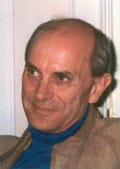
Roger Robinson is a highly-regarded writer and historian and author of seven books on running. His recent Running Throughout Time: the Greatest Running Stories Ever Told has been acclaimed as one of the best ever published. Roger was a senior writer for Running Times and is a frequent Runner’s World contributor, admired for his insightful obituaries. A lifetime elite runner, he represented England and New Zealand at the world level, set age-group marathon records in Boston and New York, and now runs top 80-plus times on two knee replacements. He is Emeritus Professor of English at Victoria University of Wellington, New Zealand, and is married to women’s running pioneer Kathrine Switzer.

